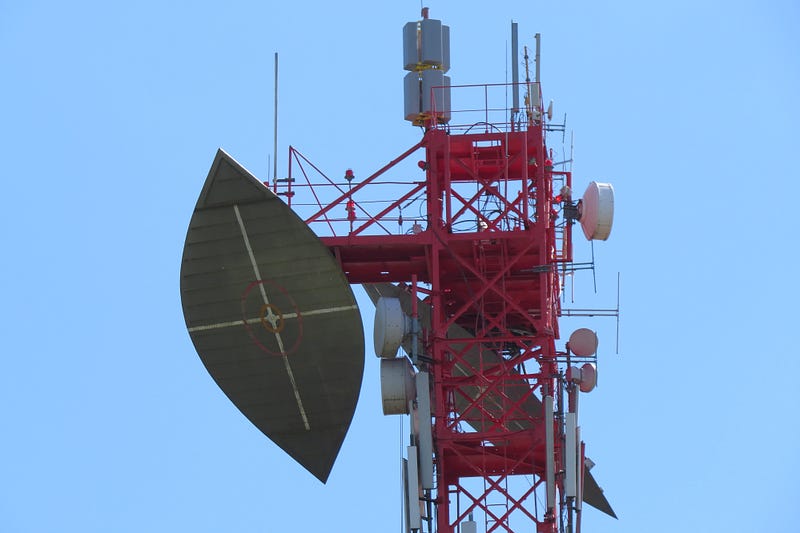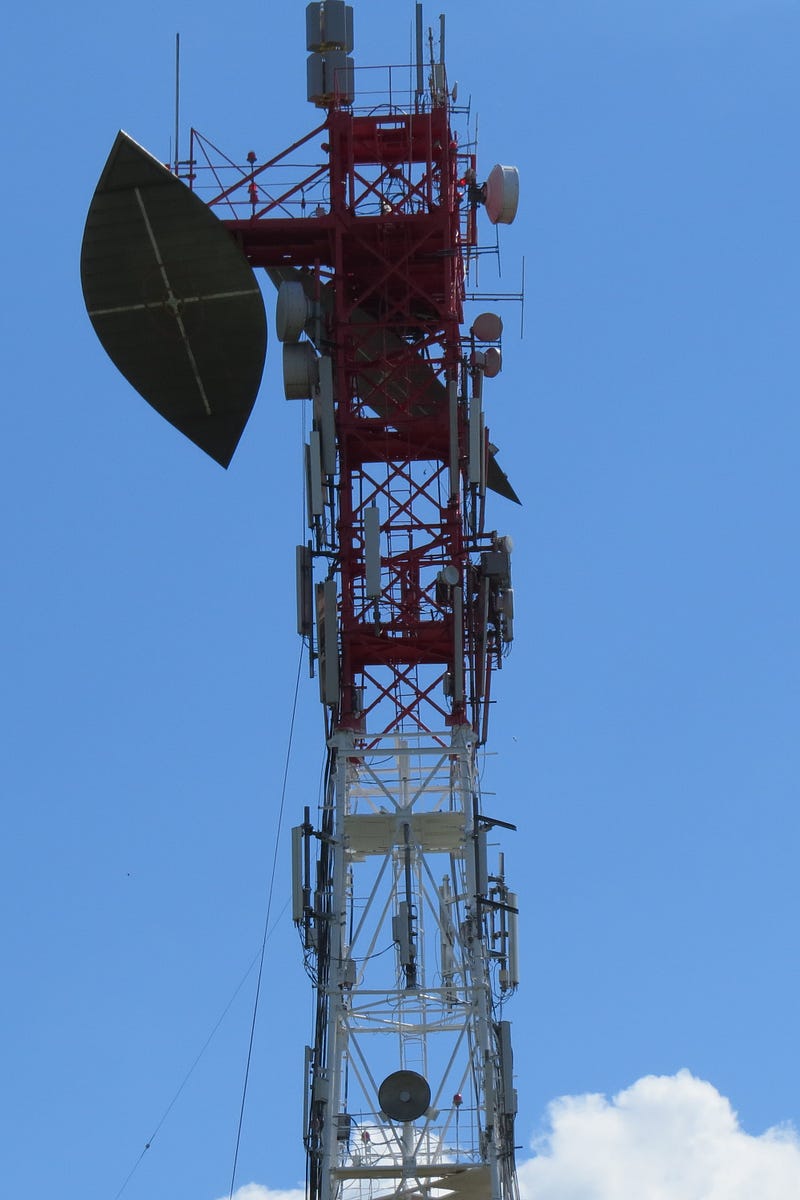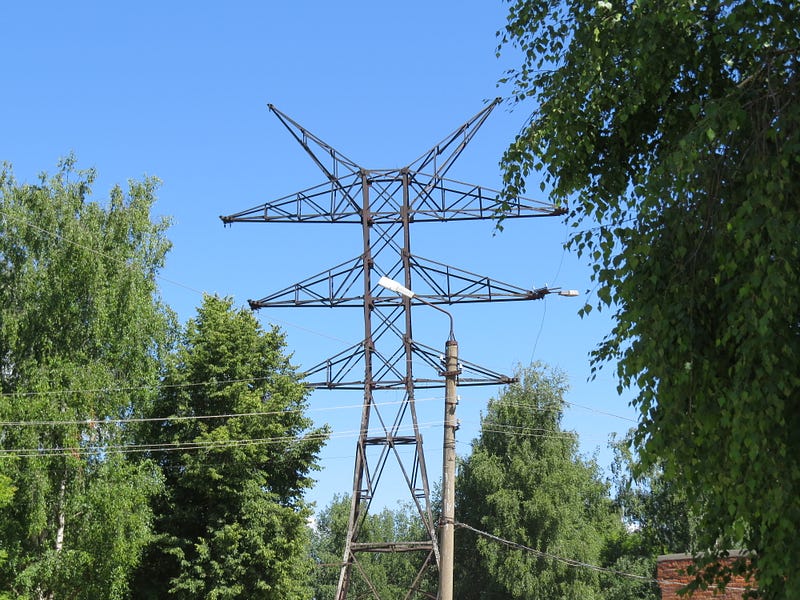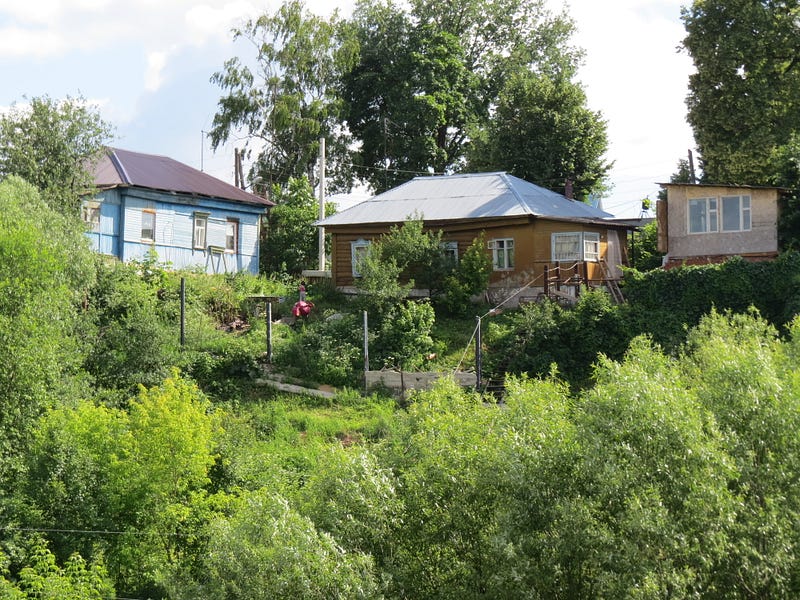Reflecting on My Father's Automated Legacy at the Relay Tower
Written on
Chapter 1: A Nostalgic Connection to the Relay Tower
The relay tower where my father worked is now entirely automated. It’s a bittersweet reality, as it seems that repetitive jobs are gradually being replaced by machines. Even the art of writing has fallen prey to artificial intelligence. This raises a thought: could AI consider our creative expressions as mere repetition? What was once a vibrant place filled with fascinating individuals and joyful memories from my childhood now stands deserted, surrounded by security cameras and high fences.

- Aleksin. Russia. The peak of the tower. Photo by author.
As a child, I always believed my father’s role at the tower was solely focused on crafting amplifiers, which I affectionately termed "amusers" for their joyful contribution to music. My dad played in a band and often built his own equipment, including pedals and amplifiers, right there at the tower.
The tower served as a relay station for telephone communications in Aleksin, our hometown in Russia. As I matured, I discovered that my father’s work in making amplifiers and fixing televisions was merely a side venture; I had mistakenly thought the tower was solely responsible for transmitting TV and radio signals. This misconception was common, as many locals would call my father and his colleagues in frustration when their televisions malfunctioned.

- Aleksin. Russia. The tower stands about 300–350 feet tall. Photo by author.
My father began his journey at the tower around 1975, shortly after returning from military service, starting as an apprentice electrical rigger. He would often share stories about his supervisors from Tula, our regional hub, who were characterized by their intelligence, wit, and kindness. They had a way of effortlessly peppering their conversations with complex vocabulary and Latin phrases.
In his early twenties, my father would listen in awe, captivated by their intellectual exchanges and dry humor. It makes me wonder if he later acquired a dictionary of foreign expressions to emulate them. Those were the golden days when being intelligent was admired, yet those who possessed that intelligence were often blissfully unaware of it.

- Aleksin. Russia. Photo by author.
Recently, my dad detailed the technical facets of his job as if I were interviewing him, but I couldn’t help reminiscing about my blissful childhood. He worked alongside 4-5 colleagues, taking shifts to ensure uninterrupted telephone signal transmission around the clock.
Night shifts were particularly special for me. On occasions when my father would bring me along, I would stay awake as long as my eyelids allowed. The tower’s surroundings were adorned with various trees—birch, fir, plum, apple, and cherry. In the stillness of the night, he would gaze at the stars and tell me how their light traveled across time to reach us, long after the stars themselves had faded.

- Polenovo. Russia. Photo by author.
I would often nap on a sofa in the common area, which was filled with a fish tank and a TV. Each morning, the aroma of fresh bread from Aleksin's bakery would waft through our town, waking me. I would find my dad, soldering iron in hand, immersed in another amplifier project for his band.
In other moments, I played with a German shepherd puppy named Guru, brought in by my father’s team to safeguard the premises. As he grew, I seemed to shrink in comparison, and playing with him remains one of my fondest childhood memories.

- Aleksin. Russia. Photo by author.
During the economically challenging late 1980s in the Soviet Union, we cultivated potatoes on the tower's grounds, which helped us get through tough times. Fruits like apples and plums also sustained us during this challenging chapter in our history.
Reflecting on those times, it’s clear why my father and his colleagues eventually became obsolete. Though they faced crises, their work often felt more like a passion than a job. While some men sought refuge in fishing or working on their cars, my dad simply went to the tower to engage in what he loved most—music.

- Polenovo. Russia. Photo by author.
The shift to machines and automation made sense to his new managers, who no longer embraced the intellectual legacy of the past. Fortunately, my dad made the wise decision to leave the tower in 1990 and focus on television repairs, a choice that proved advantageous as Japanese and South Korean TVs began flooding the Russian market. He became adept at fixing old Soviet models and thrived in that business.
After his departure from the tower, my father never looked back. I, however, often do. By the early 1990s, two decades later, he was the last remaining individual with a true passion for technology and a fondness for Latin sayings. The era of intellectuals with bushy beards, reminiscent of Fidel Castro, had faded, leaving my father as the final remnant of that time before he chose to move on.

- Aleksin. Russia. Photo by author.
Chapter 2: The Future of Automation in Communication
In this video titled "Relay Tower 0MC-810 - The Default & Separated Family Radio Signals," we explore the evolution of communication technology and its implications for personal connections.
The second video, "We made a hot dog talk... with RF," humorously demonstrates the intersection of technology and creativity in everyday life.